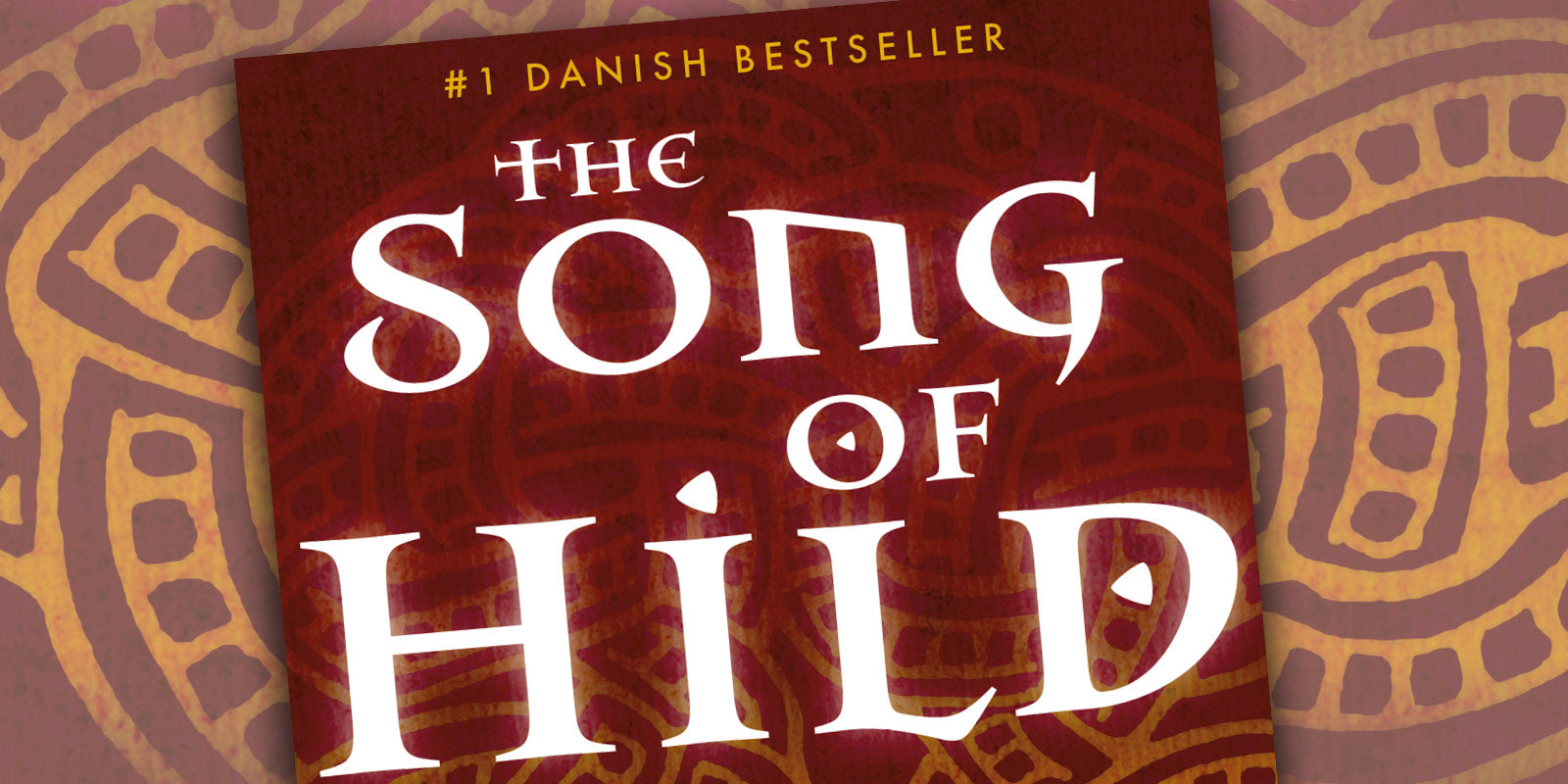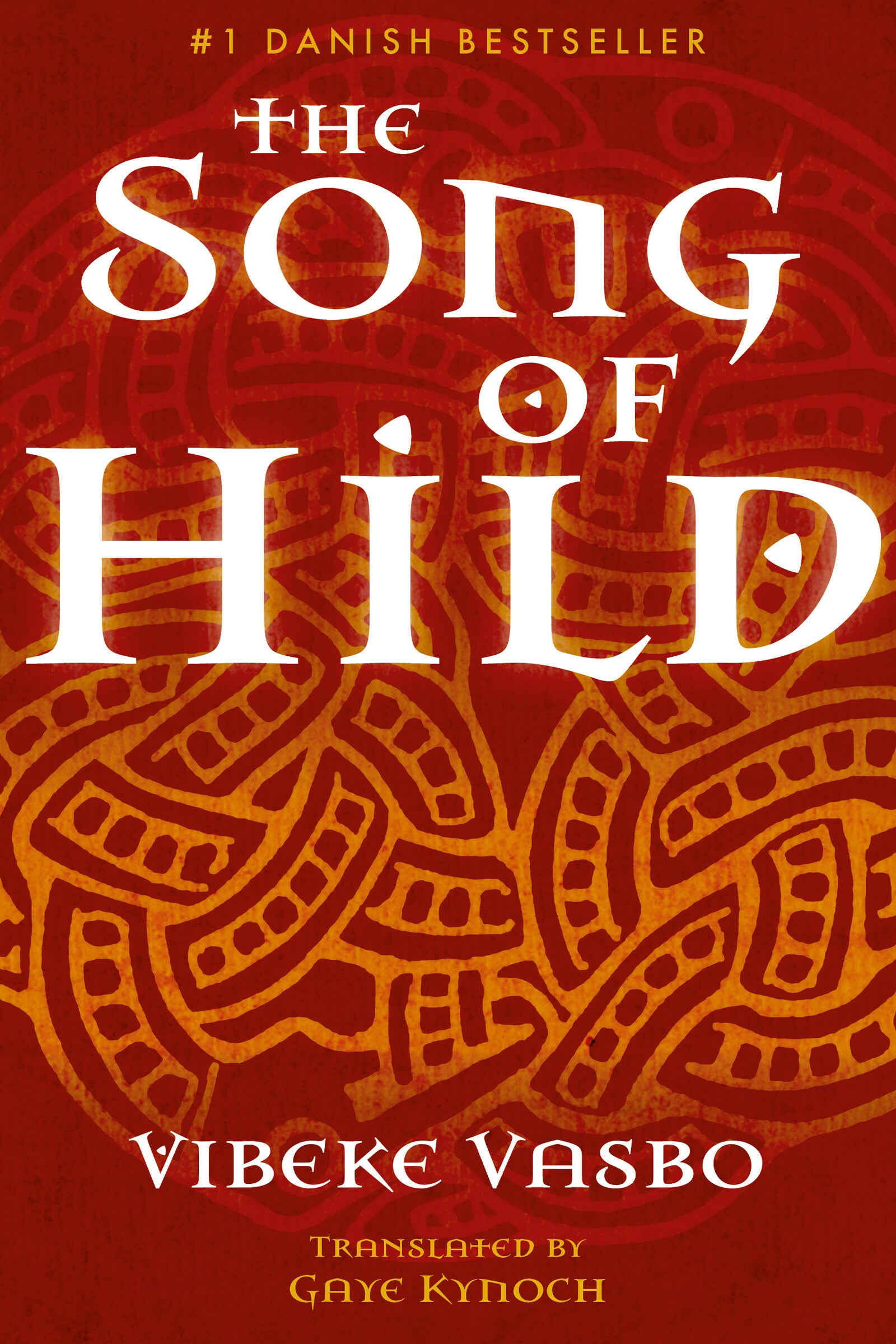GUEST BLOG: Judith Jesch, Professor of Viking Studies at the University of Nottingham, gives her expert opinion on the gritty and powerful novel The Song of Hild.
St Hild, abbess of Whitby, lived 33 years in the world, “while she dedicated an equal number of years still more nobly to the Lord, in the monastic life”, according to the Venerable Bede. Bede tells us in some detail of the monastic career of this woman who was ‘outstanding in devotion and grace’, but is silent about her first 33 years.
In The Song of Hild, Vibeke Vasbo has written an imaginative reconstruction of the whole of Hild’s life. We know from Bede that Hild was of royal birth, and was converted to Christianity at the age of 13 along with her father’s uncle, King Edwin of Northumbria, by Paulinus in 627. On the basis of these meagre facts, Vasbo reconstructs Hild’s career at the centre of the political and religious turmoil of the 7th century, when the new religion introduced a complicating factor into the feuds and alliances of the tribal kings of Northumbria, Mercia, East Anglia and Wessex, and when the original British inhabitants had not yet been fully eliminated from the territories settled by the Anglo-Saxons. Vasbo’s main source is Bede’s Ecclesiastical History: all the main characters are recorded there or in the Anglo-Saxon Chronicle. What Vasbo has done is to reconstruct connections between them and motives for their actions that are not recorded in these terse chronicles. Thus Hilda’s two husbands are prominent actors in these political dramas, and Hild and her children are inescapably caught up in the events: the book opens with a striking scene in which Hild gives birth, alone, to twin sons in a Yorkshire cave while fleeing war in Northumbria.
Hild’s growing understanding of the Christian message and her response to the teaching of St Aidan are contrasted with her happy and sexually intense second marriage to King Penda of Mercia, one of the most powerful and successful rulers of his day, and an unreconstructed heathen. Life at Penda’s court is described in meticulously researched detail. Vasbo has also made creative use of surviving artefacts from seventh-century England: lovers of early Anglo-Saxon archaeology will recognise many of the objects, such as those from Sutton Hoo, which have inspired her description of metalwork and embroidery. (Indeed the author has her own idea of who might have been buried at Sutton Hoo, in a convincing description of the half-pagan, half-Christian funeral scene.)
The narrative of the second half of the book naturally follows Bede closely, but Vasbo introduces a feminist aspect. She correctly pinpoints the importance and outstanding contribution of women to the Church and monastic life in early Anglo-Saxon England. Hild’s love of learning, stressed throughout the novel, comes into its own when she is an abbess and has the power to encourage it in others. There is even a feminist interpretation of the Synod of Whitby, which decisively turned the fledgling English Church away from its Celtic roots and towards the central control of Rome (here presented as anti-feminist). The interpretation may be modern, but the opportunities for women (and the book is full of interesting abbesses and nuns) in a time of great changes is documented fact. Again, Hild’s influence as abbess stands in stark contract to her helplessness, as princess and queen, in the face of male political and military intrigues.
An imposing, richly detailed and historically vigilant tale, told by one of the most compelling Danish voices in storytelling and gender history. Vibeke Vasbo leads the reader sure-footedly into a world that is recognizable in all its beauty and cruelty, and yet so very alien.
Dorthe Nors, shortlisted for the Man Booker International Prize 2017
Vibeke Vasbo has woven together events and characters, and imagined their innermost thoughts and feelings in a way that no historian would dare on the fragmentary evidence available. Yet the book is historically convincing, as well as a compelling read. This is how it could have been, and there is certainly nothing in the book that is actually contradicted by the surviving evidence.
The Song of Hild perfectly blends the strangeness of the 7th century with psychological portraits that will immediately strike a chord with the modern reader, as well as reminding us that the quintessential English controversy about women priests is at least 1,300 years old.
Abbess Hild of Whitby was an extraordinary woman living in extraordinary times. In this exquisite translation of the Danish bestselling novel Hildas sang, we are drawn into a world of dark dealings, powerful patriarchy and religious wrangling.
Get your copy of this “imposing, richly detailed and historically vigilant tale” today—also available as a gorgeous hardback and as an e-book on all major platforms.










